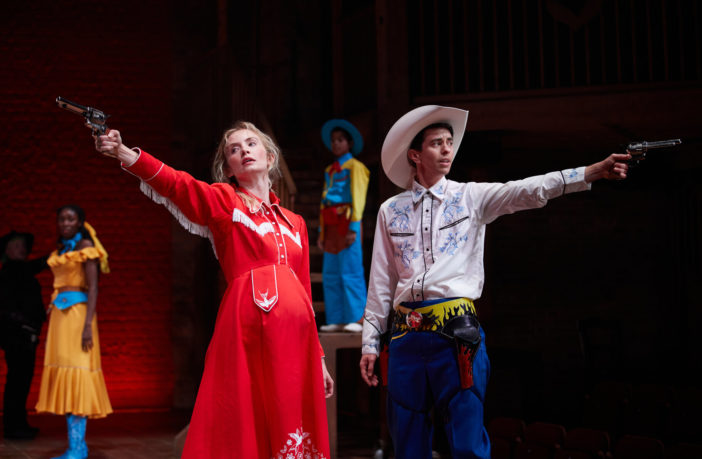‘Cowbois’ opens in a sleepy Western town, devoid of men who have long since been swept up in the pull of the gold rush, and whose wives linger in stasis. With a sloshed sheriff who does more indulging than enforcing, the women at the saloon struggle to maintain some semblance of routine, with some desperately clinging to normativity and others beginning to accept their new way of life.
When the swaggering ‘Jack Cannon’ (Vinnie Heaven) saunters straight from the wanted posters into the town, the inhabitants soon awaken, in all senses of the word. A transmasc cowboy, Jack reshapes all that the townsfolk know of gender, queer bodies, power and liberation.
‘I’ve never met anyone like Jack.’
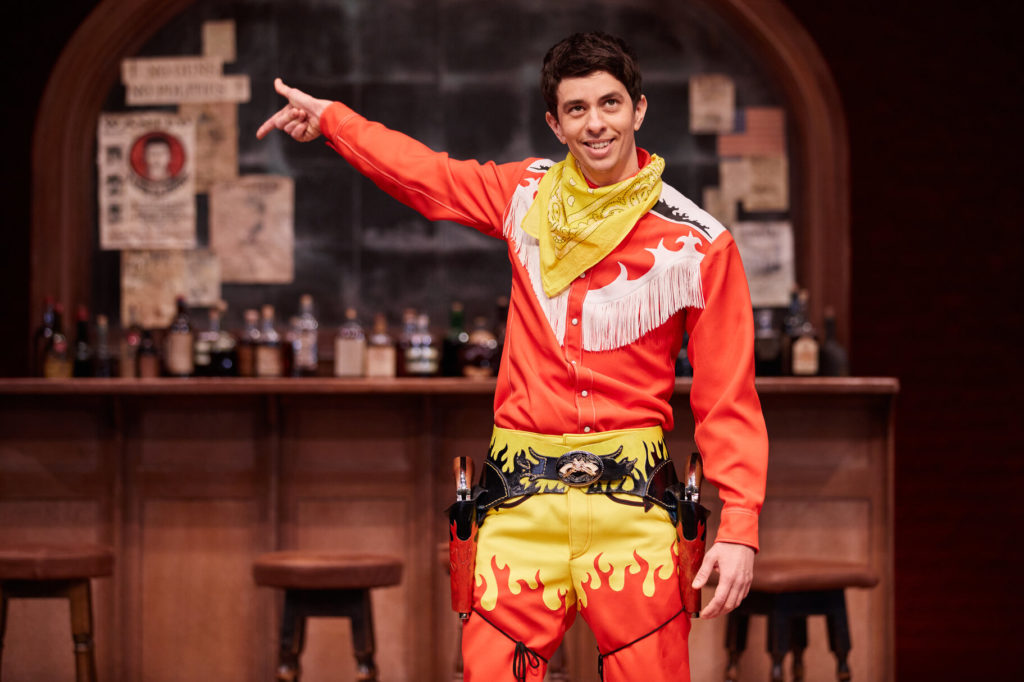
His entrance is prefaced by Sally Ann (Emma Pallant), the devoted and comedically uptight Christian woman, who recalls her fright and intrigue upon seeing the outlaw ‘bathing and singing’ from the riverbank. This shock sends a wave of fear and excitement amongst the women, who regale the sturdy Miss Lilian (Sophie Melville) with tales of his trespasses. Sally Ann fears for the safety of the town, and its status quo, but once Cannon hangs his hat in the saloon, the group are irreversibly changed.
The most striking feature of the play is undoubtedly the emphasis on bodies, both in the script and its discussion of transness and queer sexuality, but also in the incredible attention to bodily movement in space. Bethan Clark (Fights & Intimacy Co-ordinator) and Jennifer Jackson (Movement Director) are owed a standing ovation (which the play certainly received) for their captivating choreography.
The play is punctured by sequences of expressive dance, from the liberating and sensual hip-swaying of Cannon to the repressed, stuttering, and seizing movement of Jayne (Lucy McCormick). These two, in particular, have an outstanding physicality on stage and paired with Jackson’s choreography, they are impossible to look away from.
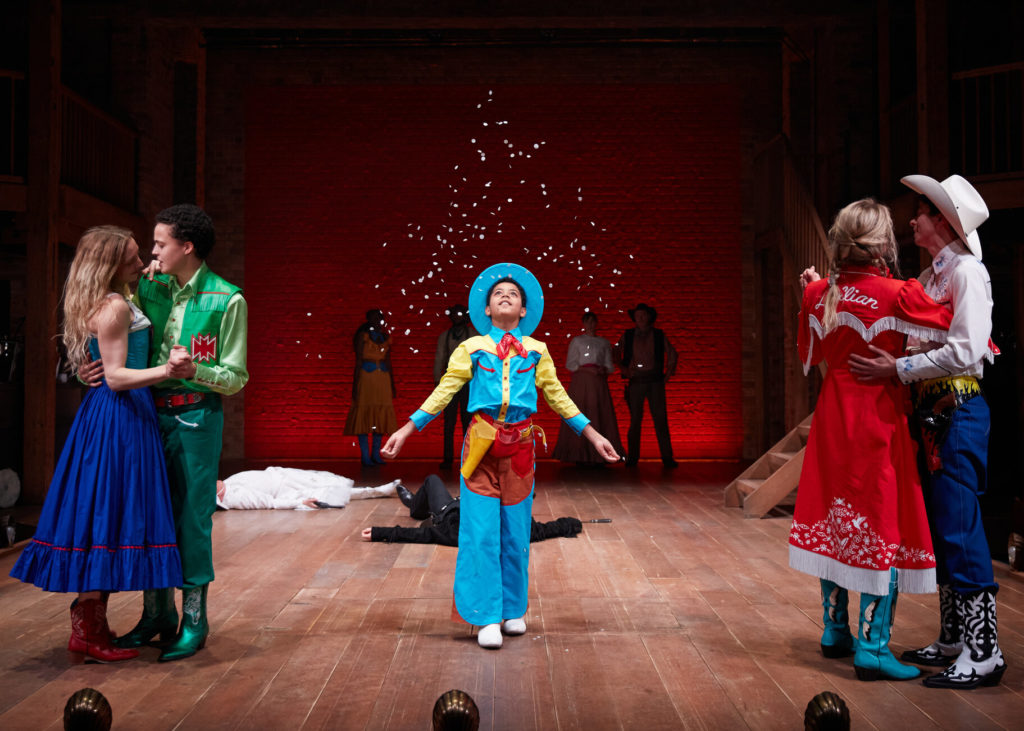
Jayne had one of the most fascinating character arcs in the play, moving from the whining and corseted schoolteacher to a woman pushed to her limits by self-discovery. Her drunken monologuing and staggering brought an impressive intensity to the piece, and as we watch her (quite literally) let her hair down, she becomes impossible not to root for.
We cannot talk of physicality without mentioning the love scene between Heaven and Melville, which is perhaps the most well-choreographed and visually moving intimacy scene I have ever seen in theatre. Enthusiastic consent is unequivocally essential amongst a chorus of ‘Can I?’ and ‘Yes’, and the staging in a bathtub affords both tasteful privacy and fluidity. Choreographers everywhere ought to take note of Bethan Clark’s fantastic work.
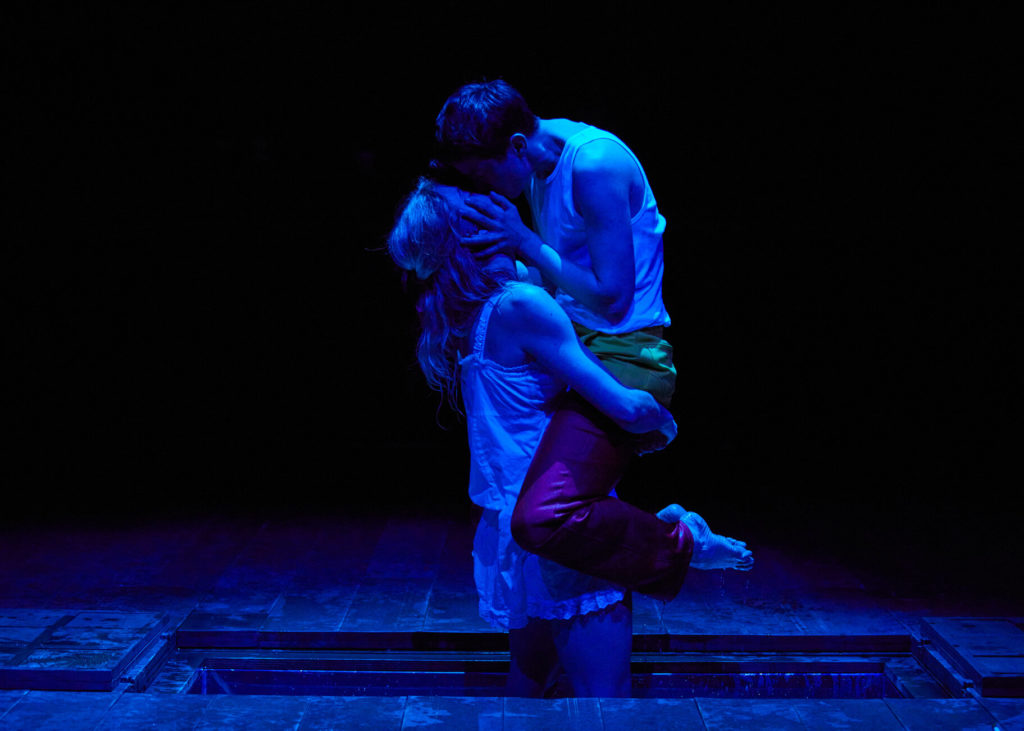
The play dances seamlessly between queer joy, wonderful visual comedy (driven predominantly by Emma Pallant and Paul Hunter’s Sherriff Roger), and truly significant discussions of gender identity, queer bodies, and freedom.
‘Don’t your skin fancy a bit of silk sometimes?’
One of the most moving interactions in the production occurs between Jack and the wonderful Lou, played by Lee Braithwaite. Even prior to Cannon’s entrance, frustrated housewife Lucy rocks the gender normativity boat by shooting an injured horse, much to the disgust of the other women. Jack opens their eyes to another way of living, symbolically offering his hat to the rebirthed ‘Lou’.
The moment when Lou steps onstage donning masculine attire draws a collective intake of breath from the audience, and the ease with which Miss Lilian acquaints herself with the new gentleman about town, introducing him to the delightfully sweet ‘Kid’ (played in this production by Alastair Ngwenya) is a delight to watch.
The first act ends in a symphony of liberation, as the cast display their new, unrestrained and brightly coloured attire, and an unrestricted way of living. The following dance scene is unapologetically full of queer joy, and Sheriff Roger wins us all over by twirling in his gorgeous silk skirt, freed by Jack from the grips of alcoholism and gender normativity.
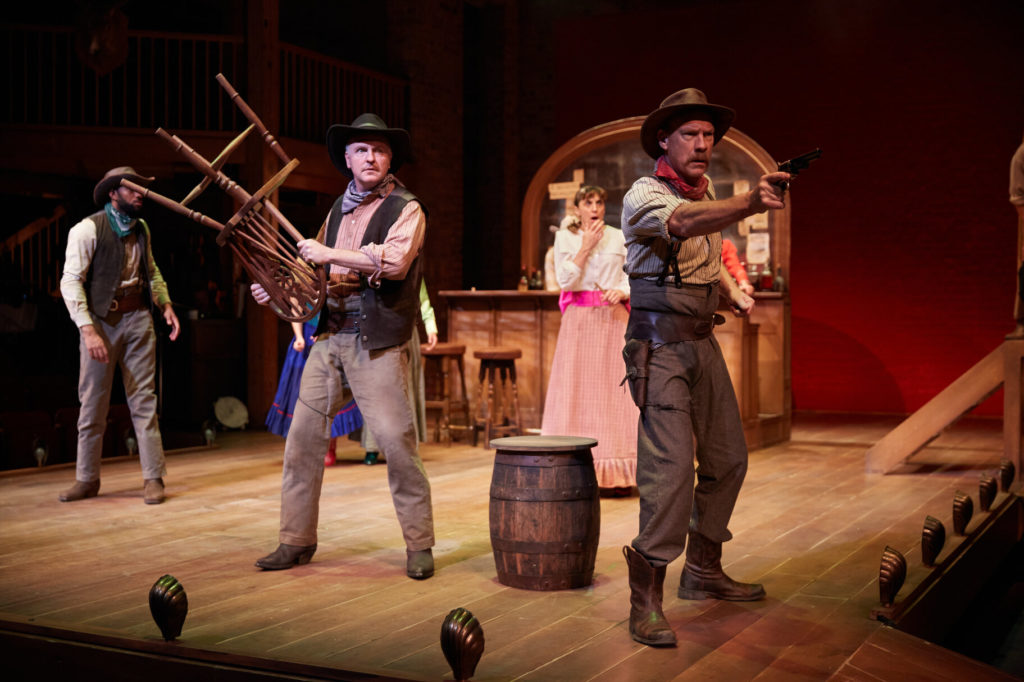
The staggeringly harsh juxtaposition between this ecstasy and the shocking return of the husbands sucked the air from the room as the second act began, and the patriarchal Frank (Shaun Dingwall) returned to claim his saloon and his (now-heavily-pregnant) wife. Not yet making the connection between his extended absence and Lilian’s unborn baby, the return of Frank and his men threatens to crush the once-liberated town back into dutiful gendered submission.
Lou’s husband (Michael Elcock) is horrified by his ‘wife’s’ new look, John’s (Colm Gormley) return sends Sally Ann back to her old ways, and James (Julian Moore-Cook) no longer recognises his childhood sweetheart Jayne. In moments of incredible tension, Frank calls for a lockdown on the saloon, insisting that everything returns to normal before anyone is permitted to leave. The theatre was entirely silent in their horror as they watched drinks being poured again and again for Sheriff Roger, and grieved for Lou who was forced to return to the stage in a skirt.
Charlie Josephine (writer and co-director of ‘Cowbois’) refuses to shy away from confrontation, offering an unflinching look into the patriarchal infiltration of queer spaces, and the subsequent culture clash. Faced by a series of external threats, including the magnificent Charley Parkhurst (LJ Parkinson) and the crooked Tommy (Shaun Dingwall), the group must fight on all fronts, discovering how their intrapersonal and interpersonal relationships can take shape in a world that is less than kind.
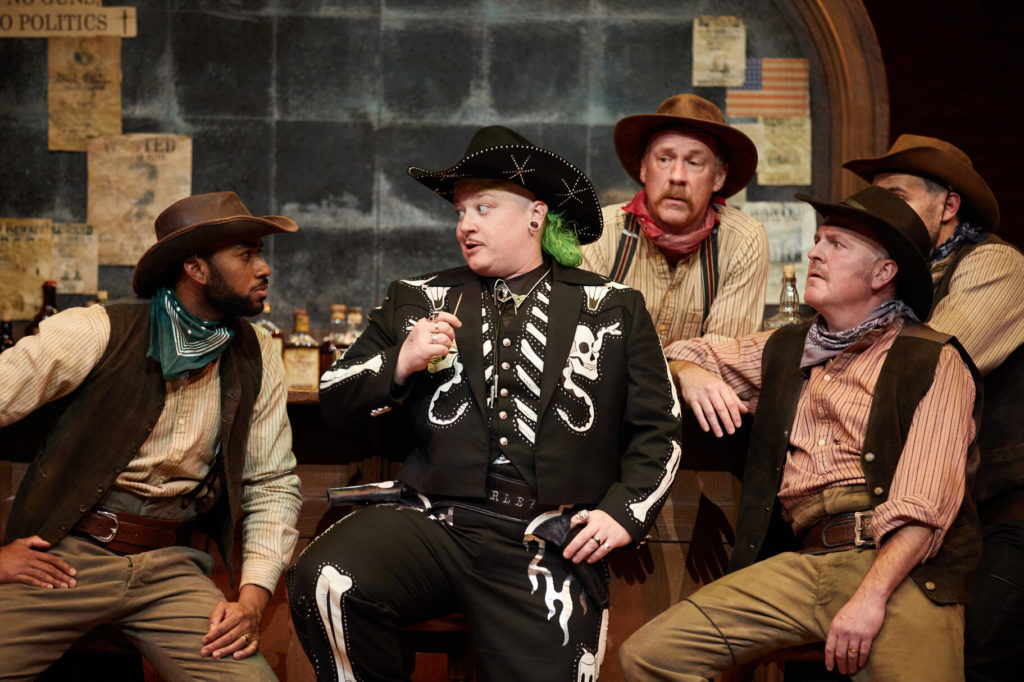
‘We won, for now. But there’ll be more. There’s always more.’
With dramatic gunfights, taxidermied animal heads donning the balconies, and some absolutely fabulous cowboy attire, ‘Cowbois’ offers everything you could hope for from a Western drama, and then piles on ounces of queer joy and trans magic.
This is a truly stand-out production from the RSC, and I am delighted to see them facilitate such an important and exciting new drama. ‘Cowbois’ is only running for a short 5-week stint in Stratford-Upon-Avon, leaving the Swan Theatre on 18th November, so do get your tickets quickly. This is not one to be missed.
★ ★ ★ ★ ★

